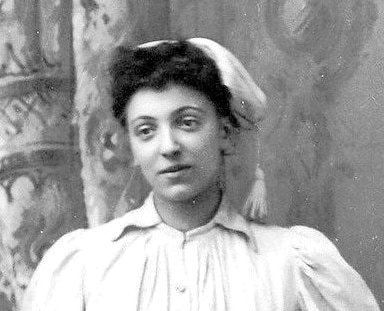A few years ago, something strange happened. An artist had been researching the history of women’s football for an exhibition – and found an article in 1896 describing a Black goalkeeper, the first known record. It took seven months for the discovery to be made in 2017, after consulting photographs of the team, that the keeper was actually white, and someone else entirely.
Emma Clarke played in this team – predominantly on the right wing (although, as was common, played in different positions), and so the records were set straight, a good 120 years after she played.
Some of this can be attributed to the lack and unreliability of records around the period (and many other stories lost), but we need to recognise that this is a familiar story amongst pioneering Black women – their stories are under-represented, often forgotten or with crucial details missing.
Born in 1876, Clarke became a confectioner’s apprentice at 15, before playing in the British Ladies’ Football Club inaugural match in front of 11,000 spectators on the 23rd March 1895 at the Nightingale Lane ground in Crouch End.
This was a North v South game, with Clarke confusingly playing for the South despite being born in Bootle. The “South” team lost 7-1. This was a huge game – not the first recorded women’s football game to be played under association football rules (this took place in 1881 – hopefully more on women’s football during this period in future programmes), but this was one of the first organised games were the women didn’t have to wear corsets while playing, nor high-heeled football boots (seriously).
In 1896, Emma, and her sister Jane, joined Mrs Graham’s XI, playing exhibition matches in a tour of Scotland. Crowds of thousands watched this team (more than were watching the men’s sport), with the Clarkes being paid a shilling per week, plus food and lodging, in expenses – which would have been significant to a working class family from the North West.
Playing records for Emma dry out in around 1903, although the Clarke sisters may have continued to play. We’re not certain when she died, nor do we have a reliable picture of what games she actually played – most records note a ‘Clarke’ – but which one is unclear. Furthermore, there were other Clarkes/Clarks playing football during this period – such as Florence Clarke, from Plumstead in London who may or may not have been unrelated.
The notion that we may never uncover more about Clarke, or learn her reflections of playing in this period, is a sad indictment of the treatment of both women and Black footballers during this period and another reminder of why we need to ramp up our efforts as a club to stand against racism, sexism and other forms of discrimination.

